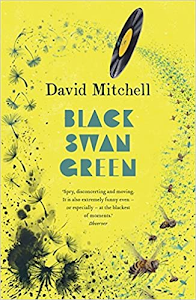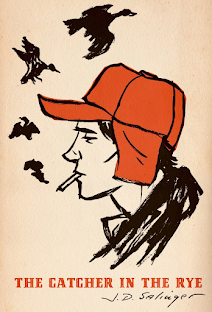Jason's Voices
In Black Swan Green, Jason Taylor deals with three internal characters. He has Maggot, who is afraid of everything and protects Jason's self-interest, Unborn Twin, who encourages Jason to live life to the fullest, and Hangman, who personifies Jason's stutter. Maggot and Unborn Twin speak to Jason frequently, through the use of italicized text — usually used by authors to refer to thoughts or internal dialogue. Hangman, however, is more "othered" inside Jason's head. He doesn't really speak, but instead is just a constant, threatening presence. Jason's three voices represent David Mitchell's revision of the Freudian concepts of Id, Ego, and Superego. Id drives survival instincts, Superego represents superior moral judgement, and Ego balances the two. However, instead of having these three helpful psychological constructs, Jason has three that work against him.
Maggot is so named because he's small, weak, and always scared. When Jason hears the noises of a fight, Maggot encourages him to run away instead of to find out what's going on. When Jason wants to step up to a challenge, Maggot convinces him of its danger in an attempt to stop him from doing it. Maggot could be connected to the theory of the Id personality, because it is rooted in basic survival instincts. However, Maggot represents more anxiety than concrete fact, like survival instincts would. Maggot worries about things that might happen, even when they are only faintly possible.In opposition to Maggot, the Unborn Twin personality encourages Jason to do dangerous things. The Unborn Twin is who Jason could have been, a life that might have replaced his own under different circumstances. Unborn Twin wants dangerous things because it is stronger than Jason, and Jason thinks about how much better he could have been if he ended up differently. The Twin is less concretely connected to a Freudian concept than Maggot is, but it loosely resembles the Superego. The Superego's moral judgement is based on societal expectations, on doing what is best for the many instead of the self (as drives the Id). Jason's warped social views and extreme self-editing shape his idea of what the societal expectations are. The Unborn Twin could represent what Jason unconsciously believes to be the best moral thing, because of the way he looks up to the "hairy barbarian" life.
Like the Ego, Hangman is not driven by any particular force, but is just a mediator. However, instead of mediating the relationship between the Id and Superego, Hangman mediates the relationship between Jason and his surroundings. The words that Hangman limits define Jason's entire life. He constantly has to find workarounds, think one step ahead, and attend counseling to lessen Hangman's effects. Instead of being a tool for success, a conduit of logical thinking, Hangman is the fog that hangs over Jason's head to confuse and embarrass him.
Mitchell uses the inverses of these three concepts to represent the utter confusion that accompany these coming-of-age narratives; sometimes it's difficult to merely escape your own head. Instead of survival instincts and rationality, the adolescent brain is often much more complicated, and make mental stability a lot harder to achieve, as is certainly the case through Jason's journey.


I really like the connection you draw between the voices and Jasons head and Freudian concepts. I think it really shows how these problems or voices that Jason has, can be applicable to others, and overall help makes the story seem more real.
ReplyDeleteNice post, I really like the comparison you make between Jason's voices and Freudian concepts. His voices are definetely a good representations of Jason's confusion and anxiety during his coming-of-age journey. I'm able to relate a bit to Jason's struggle to decide and control these voices. In middle school, when I found myself in awkward situations with the "popular" kids my mind often split between standing up or backing down. I agree that these voices show how complicated and confusing an adolescents mind can be.
ReplyDeleteBreaking down the internal voices within Jason is extremely important and I think you did a great job. I really think it is important to show the development of his character through which voice he listens to most. For example, he listens to unborn twin more as the novel goes on. Great post!
ReplyDeleteThe internal voices Jason has really help him progress through his life, even if they may be impeding his progress at some points. They help him become who he truly is, and listening to unborn twin more really helps him the most, I think. Listening to his subconscious, trusting his gut, and not second guessing himself is something I really enjoyed throughout the book, especially towards the end. Good post!
ReplyDeleteThis is a really great post. The usage of the conventional Id, Ego, and Superego with a particularly wicked twist demonstrates the inversion of social expectation during puberty at an age where the most miniscule things are magnified to an uncomfortable extreme. The analysis towards these conventional psychology concepts in combination with a more familiar intrapersonal process culminate when we observe how this mix of different factors affect the interactions between Jason and the "outside world". Most importantly, I think the coming-of-age process within Jason is completed when he overcomes all these different voices to break himself free from the different expectations and pressures which previously governed him.
ReplyDelete